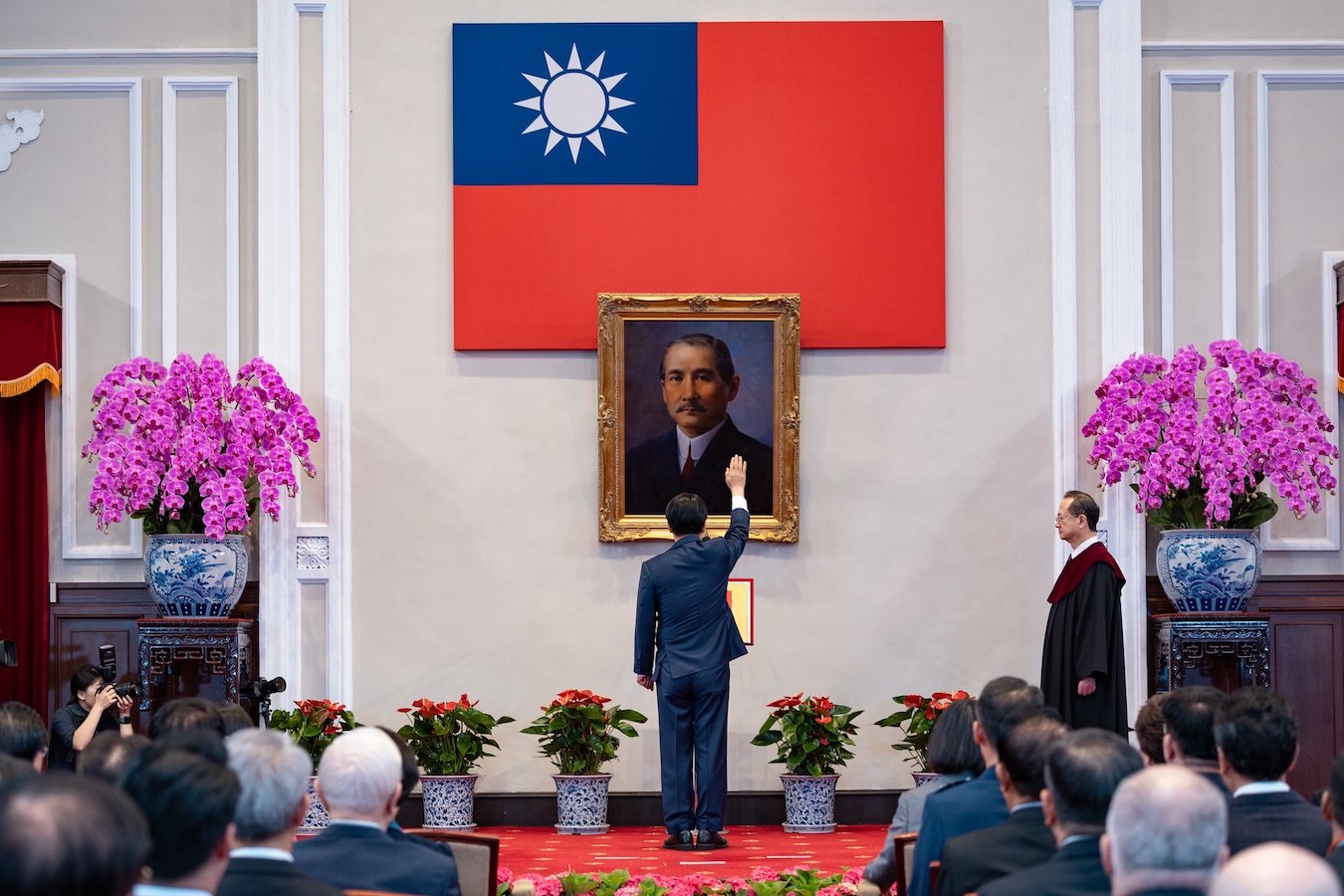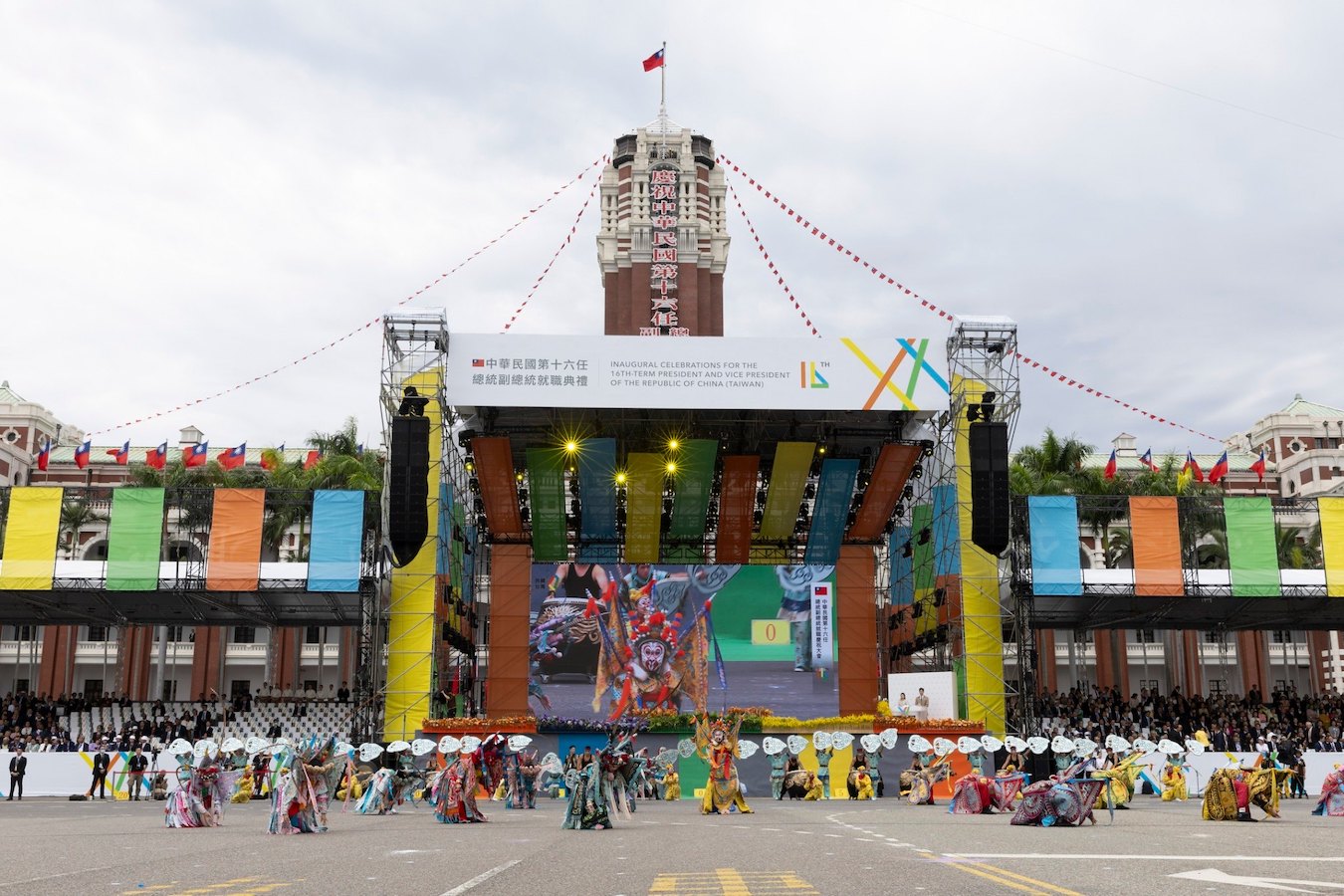by Brian Hioe
語言:
English
Photo Credit: I Chen Lin/Office of the President//Flickr/CC BY 2.0 DEED
THERE WERE FEW surprises in newly sworn-in President Lai Ching-te’s inaugural address. Namely, Lai emphasized a pro-status quo position, in line with his claims during his campaign for the presidency that he would adhere to the foreign policy of the Tsai administration.
This would be the view that there is no need for a declaration of independence because Taiwan is already a sovereign and independent country by the name of the ROC. Although Lai reiterated that this would be his stance many times, there will and always be speculation about potential moves in a more pro-independence direction on his part. Namely, Lai is haunted by the history of his having stated that he was a “pragmatic worker for Taiwanese independence” during his stint as Tainan mayor.
Lai sought to convey a message of moderation but also steadfastness in the face of China. Namely, Lai stated that Taiwan would continue cooperation with like-minded democratic countries regarding China, aligning with the US in maintaining Indo-Pacific peace. At the same time, Lai sought to emphasize that the door was open to dialogue, and called for moves toward peaceful relations such as the resumption of tourism on reciprocal grounds.
 Lai Ching-te’s swearing-in. Photo credit: Shufu Liu/Office of the President/Flickr/CC BY 2.0 DEED
Lai Ching-te’s swearing-in. Photo credit: Shufu Liu/Office of the President/Flickr/CC BY 2.0 DEED
Even if Lai emphasized his status quo position, this will not prevent China–or the KMT domestically–from continuing to frame Lai as dangerously pro-independence. After all, in spite of her pro-status quo position, China still sought to use Tsai’s cross-strait policy to justify the increased military threats that Taiwan has seen in past years. Seeing as Lai’s cross-strait position is no different, this means that China may continue with threats, as Lai himself suggested was probable to occur.
Indeed, Lai’s real audience was likely never China, but more the international world, with countries that have strengthened ties with Taiwan in past years hoping to see consistent foreign policy with the DPP now in power for an unprecedented third term. So, too, with Lai’s domestic audience. Specifically, late in his speech, Lai referenced how the “ROC Taiwan” that the DPP currently refers to is not necessarily the “ROC” or “Taiwan” of others, but Lai emphasized the pragmatism of that the key point was not what name Taiwan is known as, rather a commitment to democratic values and defending sovereignty. Lai also referred to himself as the president of the ROC within the ROC framework.
Indeed, references to the ROC by Lai are largely interpreted as pro-sovereignty statements at this point in domestic politics, with Lai calling on China to respect the existence of the ROC and that the ROC was not part of China. Lai otherwise stated that Taiwan could continue to pursue international trade ties through agreements such as the CPTPP or bilateral trade agreements with potential allies.
When it came to domestic policy, neither was Lai’s speech very surprising. Lai emphasized reconstruction efforts in Hualien after the series of earthquakes that Hualien has seen in past months, and to further resilience in Taiwan in the event of natural disasters. To this extent, Lai touted efforts to renew infrastructure, emphasized that the labor insurance system would not go bankrupt under his watch, and stated that he would improve healthcare to fight long-term diseases such as cancer, and create opportunities for young people. Lai also stated that his administration would fight crime, fraud, and drugs, take steps to end Taiwan’s reputation as a “pedestrian hell”, and speed up the pace of urban renewal. An energy transition to renewables that still allowed for a stable supply of power would be enacted.
Some of Lai’s signaling toward young people was relatively surprising. Lai expressed continued commitment by the DPP to lowering the voting age to 18, in spite of a previous failure to lower the voting age through a national referendum. Calls by Lai for innovative industries using AI or other smart technology, taking advantage of Taiwan’s role in global supply chains, were linked with civilian but also potential defense applications, such as drones or the space industry. Lai stated that by way of such policy, Taiwan would see a “second economic miracle.”
 Performances for the inauguration. Photo credit: Shufu Liu/Office of the President/Flickr/CC BY 2.0 DEED
Performances for the inauguration. Photo credit: Shufu Liu/Office of the President/Flickr/CC BY 2.0 DEED
The only true surprise in Lai’s speech was that he referenced the ongoing contest in the Legislative Yuan regarding new changes that the KMT is pushing for, which would allow legislators to summon individuals to the legislature for questioning and prosecute them for up to three years in jail if they were to refuse to comply, or unwilling to disclose confidential information. Lai called on political parties in the legislature to “observe procedural justice” and that, while the people have chosen in deciding that there would be three parties in the legislature, none of which holds the majority, parties should seek to serve the people and defend Taiwan’s sovereignty rather than focus on their own interest. This can be read a jab against the KMT.
Indeed, with a spontaneous protest on Friday against the KMT and TPP’s efforts to push through such changes, a rally by the TPP yesterday in support of the changes, and another demonstration against the changes for tomorrow night, the Lai administration is likely to see its first political storm one day after the inauguration. It is to be seen how the Lai administration and DPP react to such events.

